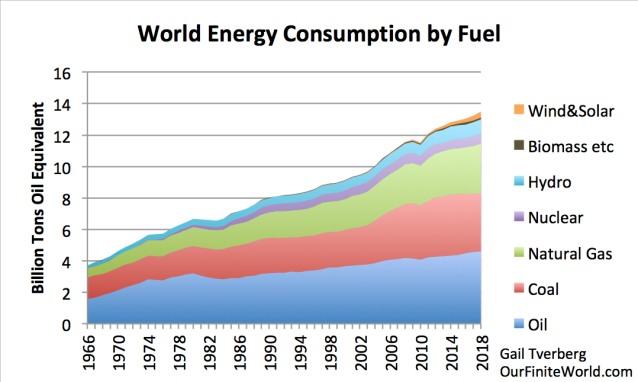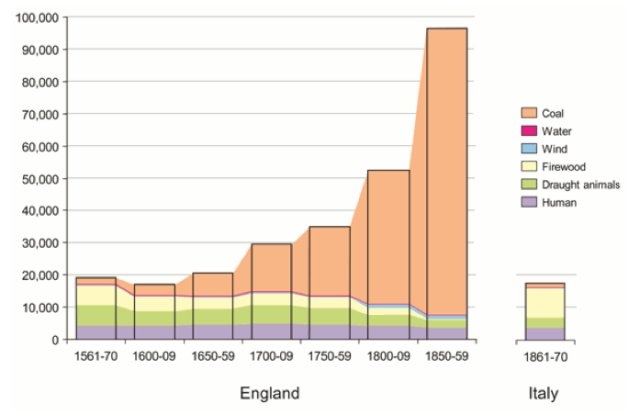"Intermittent electricity, because of its tendency to drive other providers to bankruptcy, will tend to make the grid fail more quickly than it would otherwise. The big danger ahead seems to be bankruptcy of electricity providers and of fossil fuel producers, rather than running out of a fuel such as oil or natural gas."

Rethinking Renewable Mandates
Powering the world’s economy with wind, water and solar, and perhaps a little wood sounds like a good idea until a person looks at the details. The economy can use small amounts of wind, water and solar, but adding these types of energy in large quantities is not necessarily beneficial to the system.
While a change to renewables may, in theory, help save world ecosystems, it will also tend to make the electric grid increasingly unstable. To prevent grid failure, electrical systems will need to pay substantial subsidies to fossil fuel and nuclear electricity providers that can offer backup generation when intermittent generation is not available. Modelers have tended to overlook these difficulties. As a result, the models they provide offer an unrealistically favorable view of the benefit (energy payback) of wind and solar.
If the approach of mandating wind, water, and solar were carried far enough, it might have the unfortunate effect of saving the world’s ecosystem by wiping out most of the people living within the ecosystem. It is almost certain that this was not the intended impact when legislators initially passed the mandates.

1] History suggests that in the past, wind and water never provided a very large percentage of total energy supply
LEARN MORE
DECARBONATION OF OIL AND GAS
